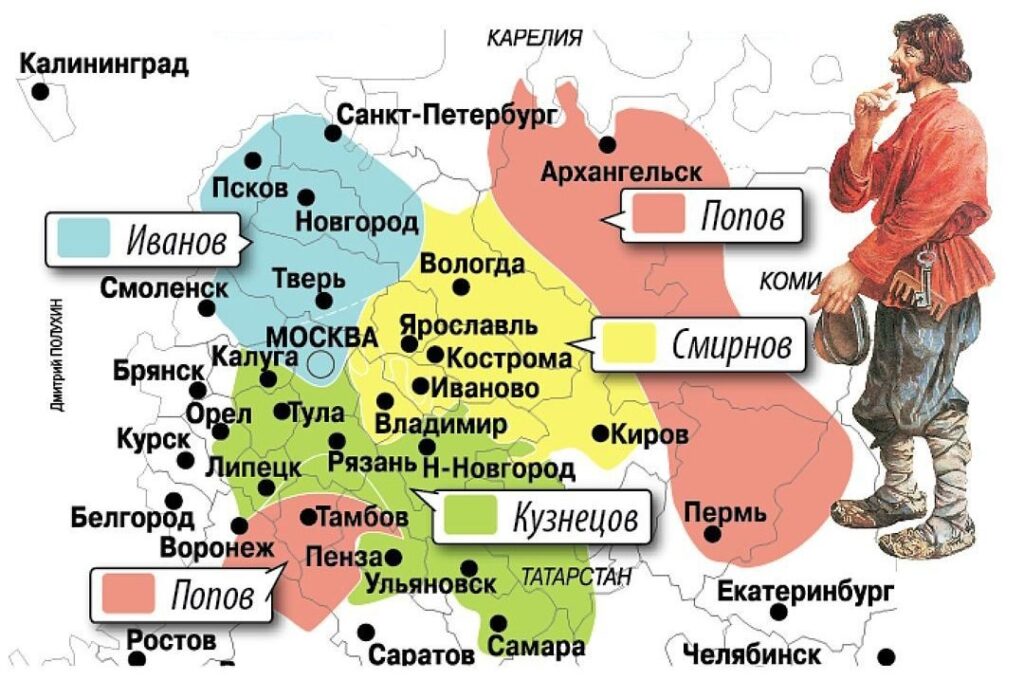
Choosing the right vocabulary to express your thoughts and using correct grammatical constructions are all important for normal communication. However, there is the Russian language one other important element without which you risk being completely misunderstood. It is the accent.
Getting the accent right is important. For example, there are words that are spelt the same way, and it is only through the accent that you can understand that they are two different words:
In addition, there is such a phenomenon in the Russian language as mobile accentuation. For example, the accent in the same root words or in the same word different forms may or may not coincide:
The best way to learn to pronounce Russian words correctly is to listen as much as possible. Songs, films, podcasts, and conversations with Russian-speaking people – all options will work. The second way is to read books intended for pre-schoolers and foreigners, as they usually have a special accent mark.
By clicking "Send" you agree to us processing your information
There are no global rules that allow you to organize all the information about accents in the Russian language. There are, however, some regularities on how to accent certain words and tips on how to accentuate them correctly.
The accent may be either constant in the persons and forms any, or it may be movable. If the stress in the 1st person singular be on the stem, in all other forms it will also fall on the stem
In the first person singular, the stress is placed on the last syllable, in the other forms it can be either fixed (also on the last syllable, the ending) or movable, moving to the stem.

Many Russian surnames are adjectives that denote belonging to either a genus or an object. And the accent in most cases in such words will fall on the root in surnames formed in another way:
The stress on the last syllable of a native Russian surname is uncharacteristic, it is more likely to be a foreign surname: Глушко́, Сушко́, Аватесян́, Рыжа́к.
Although there are exceptions, they just need to be remembered: Ивано́в, Петро́в, Кузнецо́в.
1. In addition, there are Russian accentuationa few patterns that are more interesting. If there is an -тель- in a word, it is likely that the stress falls on the preceding syllable: обстоя́тельство, обворожи́тельный. Exceptions: смерте́льный, слушате́ль.
2. In words ending in -ие, the stress often falls on the vowel preceding that syllable: волне́ние, терпе́ние, расшире́ние. Course, there are exceptions: тре́бование, мне́ние.
3. The syllables -ство and -ость at a word end are usually voiceless: пи́ршество, сосе́дство, ра́дость, сло́жность.
The Russian language another peculiarity is the stressed and unstressed vowels differently pronunciation. A vowel under stress is always pronounced as it appears in the alphabet. In the unstressed position, the sound that represents the letter can change.
So it is better to remember how a word is spelt and pronounced and where the accent is placed, so that there is no confusion later on.
The subject of accents in Russian is indeed a very difficult one, and it may be difficult for you to cope with it alone. However, don’t despair: patience and sensitive teachers will help you. The Leader Russian as a Foreign Language School has it all.
We hope you found this article useful. We are ready to help you learn Russian online with a native speaker. Classes are individually adapted to your wishes. Submit an application for a free trial lesson and we will find the most suitable Russian language course for you.

By clicking "Send", you consent to us processing of your information.





By clicking "Send" you agree to us processing your information
By clicking "Send" you agree to us processing your information